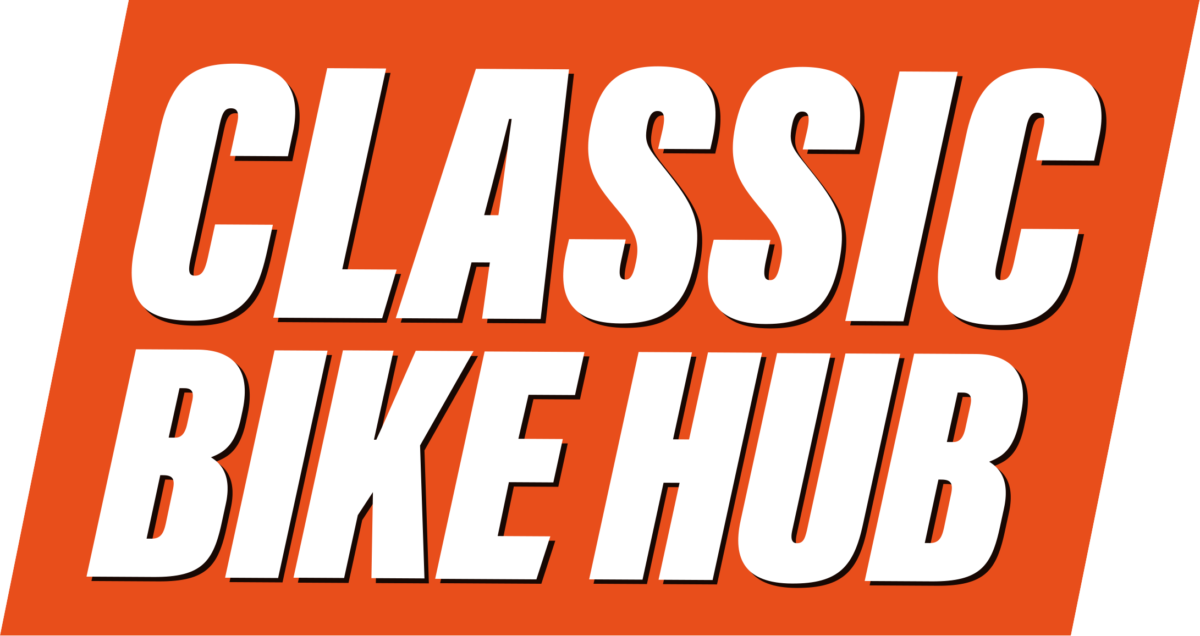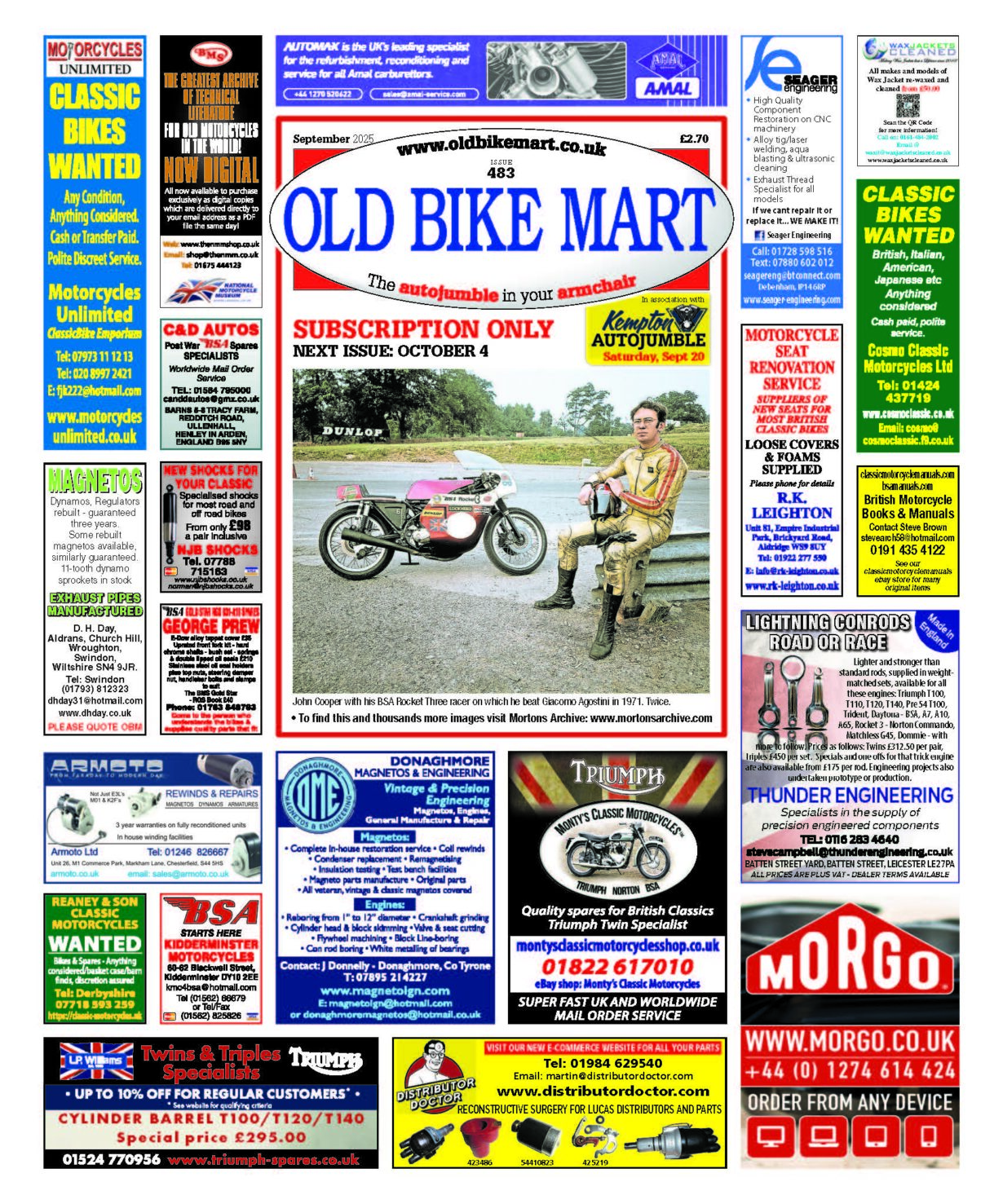
Suzuki wanted me to break the bike…
I’d been called in to race the Trans-Atlantic races. The first round was at Brands Hatch and I was out riding on the factory’s 653cc machine. Things didn’t kick off all that well as before long I found myself rolling at speed through the gravel at Paddock Hill bend. It was a big crash and a fast crash. I was so embarrassed and I didn’t fully understand how it had happened. I came back to the pits with my head down when my team came bumbling over desperate to know whether I’d managed to destroy the bloody bike. I couldn’t believe it. They disliked it more than me. I got told that crashing was okay, as long as I could guarantee writing the machine off in the process.
I had my own way of learning tracks…
There was nothing more challenging than going to a new circuit and trying to get on pace. Nowadays, people can watch videos online or play computer games to get a preview of the circuit, but I had none of that. It meant I had to push myself to learn a track quickly and easily. Typically, we only had two hours of track time before a race and half an hour of that time would need to be spent running in an engine. Thankfully, on the GP bikes, we often had a lot of data to hand, which meant I had a good base to start from. I used to head out first on my number one bike to scrub in the engine, before hopping on to my second bike for the next couple of sessions, gradually finding my way around the track, learning my braking markers and making sure I had the right gears for every corner. The process seemed to work. That first year was particularly tough, but I guess it could have been a lot harder. When all’s said and done, it was part of the fun.
Racing for Ago was a bit of a nightmare…
Looking back, I don’t think Ago was the best of team bosses. He seemed half-hearted at best, preoccupied with everything other than racing. I remember he seemed to spend more time dealing with his property investments, than sorting out our racing issues. And then with those issues that had to be sorted, he’d refer you over to his brother, who’d then explain he couldn’t allow for anything without Ago’s blessing. It was something of a circus. Thankfully, I was so naïve that I just went along with it all in blind faith, confident that it would all work out. Which it kind of did. We got our bikes as soon as the Malboro money came through and off we went racing. Or at least kind of.
Enjoy more classic motorcycle reading, Click here to subscribe to one of our leading magazines.
There was a whole string of crazy things which happened that season, including my race fuel been nabbed by Ago in Argentina so that he could drive around in his car. The guys had to put pump fuel in my bike, which predictably seized during the race. They also had a bit of a habit of lending my bike out to people, which wasn’t such an issue apart from the fact that people kept on crashing it. One time, Graziano Rossi had been lent my two bikes to compete in the Italian championships, between GP races. One got crashed and the other used the duration of cranks miles, so off I went to the GP the next week and the thing blew up again.
Life on the road was fun…
I bought myself an American-style motorhome, because that’s what I thought you had to do back then. It wasn’t such a bad thing. I picked it up from a chap in Belgium and began travelling between the European circuits with my mates on-board. It was home-from-home and a lot of fun. But we were fresh campers and needed to learn a few tricks. Like, for example, where to park up. Not all circuits had the best facilities, but that didn’t matter so much if you had a motorhome. Your loo was built-in. All you had to do was couple up a pipe and drain the collecting tank off every now and again. Obviously, logic dictated that with everyone behaving in a similar type of manner, the last place you’d park up would be at the bottom of a slope like we did at Spa one year. Never again.
We got backing from Qantas…
They didn’t really want to be associated with us, but they were good enough to chuck us some money. The idea was that we’d fly with them and they’d send us the money we needed in order to book the flights and send our Z1000 to Europe. It was a great deal. They didn’t want a sticker on the bike or anything in return for their $2500. Anyway, we soon worked out that if we flew with another airline, the flights would be a lot cheaper, meaning we had more money for beer and racing. Happy days.
I never felt I could complain about danger…
Having done the TT for three years on the bounce, I’d have been a massive hypocrite to stand up and say the circuits we were racing on weren’t safe. Maybe they weren’t, but compared to what I’d been doing on the island, they were a luxury. So I never really had any issues, other than this one time in Negaro in 1982. The riders refused point blank to race on the circuit, leaving me and one or two others the only guys that would have just gone out and got on with it. But if we’d raced, it would have really worked badly against us from a political point of view. I didn’t want to, but I found myself a quiet protester for the sake of my career.
I’d always wanted to fly…
While I was racing, I’d learnt to fly and got my private pilot’s licence. A lot of motorcyclists are into planes and so was I. In fact, I loved flying so much that it became my focus. It was my dream and I’m the kind of person that follows my dreams. That’s why I found it so easy to quit GP racing in 1982 and begin my commercial pilot training. Looking back, maybe it was a big gamble. In New Zealand, there aren’t all that many airline jobs and most pilots tend to be ex-military, which of course I wasn’t. I wasn’t the best at maths either, which is essential for flying, so a lot of time was spent upping my game in that department. And it all paid off.


